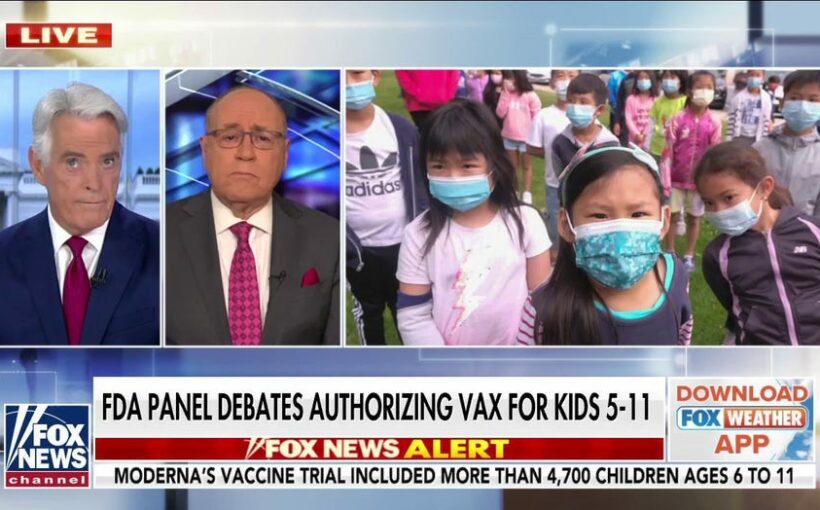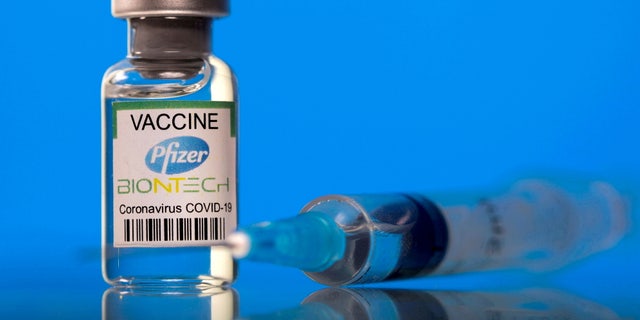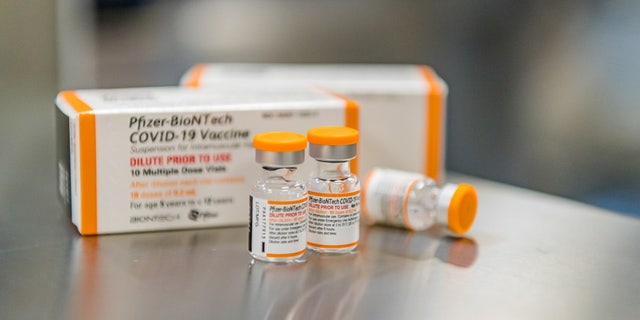Dr. Siegel on COVID vaccinations for children 5-11
Fox News medical contributor Dr. Marc Siegel responds to FDA debating whether to approve Pfizer COVID vaccine for children ages 5-11.
A child I know very well told me today that at his high school there is a separate testing group for children who have recovered from COVID-19 and are still suffering from a brain fog. They are allowed more time to complete their examinations.
This is an untold story of the pandemic; short and long term cognitive difficulties affecting many of all ages.
An over-told story is the rare risk of myocarditis (especially in male teens) who perhaps received too high a dose of an MRNA vaccine or received it too close together. Either way, the incidence is still less than five per 100,000 and almost all recover. Compare that to the risk of long COVID (more than 10 percent) in young people, plus more than 150 deaths ages 5 to 11 according to the CDC.
These are the kind of risk/benefit analyses that take place every day in pediatricians’ offices—conversations between doctor and patient and parent, where the risk of the disease is compared to the potential side effects of the treatment or vaccine.
FILE PHOTO: A vial labelled with the Pfizer-BioNTech coronavirus disease (COVID-19) vaccine is seen in this illustration picture taken March 19, 2021. REUTERS/Dado Ruvic/File Photo/File Photo
(REUTERS/Dado Ruvic/File Photo/)
The same kind of discussion appears headed for pediatricians’ offices where young children will likely be offered the option of the Pfizer vaccine as early as next week. The doctor’s office—with a smaller needle and the familiar pediatrician as a guide—is where this conversation belongs, not at a political podium or in the news media.
Dr. David Kessler, pediatrician, former FDA commissioner, current Chief Science Advisor for President Joe Biden’s COVID response team, told me in an interview last week on SiriusXM that he helped steer the process towards this important outcome.
Another crucial hurdle was cleared on Tuesday when the FDA Advisory Committee, including several top Pediatric Infectious Disease experts, decided unanimously 17 (with one abstention) to recommend approval of the vaccine (at one third the adult dose) for ages 5 to 11 under an emergency use authorization.
They examined the data for effectiveness (more than 90%) and safety, and determined that it passed muster. As Dr. Paul Offit, a member of the advisory committee as well as head of vaccinology and a top pediatric infectious disease specialist at the University of Pennsylvania recently told me, the committee members make their recommendation based on whether they would be willing to give the vaccine to their own child.
FILE PHOTO: Pfizer/BioNTech’s new pediatric COVID-19 vaccine vials are seen in this undated handout photo. Pfizer/Handout via REUTERS/File Photo
(Pfizer/Handout via REUTERS/File Photo)
In this case, the answer was a resounding yes, and the full FDA and the CDC, are sure to soon follow and rubber stamp the approval.
Then comes the doctor’s office, sometime in early November. In the meantime, young children are spreading the virus, and though most do quite well, some don’t. In fact, thousands have been hospitalized.
The committee members make their recommendation based on whether they would be willing to give the vaccine to their own child.
One of my close relatives is fully vaccinated, but he is obese and has a chronic health condition. His young child brought coronavirus home from school and he was infected. Despite being vaccinated against COVID-19, he had a few rough days of fever, fatigue, and shortness of breath.
He recovered, but it occurred to me that the decision on whether to vaccinate a 5-year-old with a safe and effective vaccine in the middle of a pandemic is not just one based on assessing the risk of a bad case of COVID or a prolonged sequelae versus the much lower risk of a vaccine side effect. It’s also an assessment of the risk that an infected child presents to the community at large—a risk to parents who may be at much higher risk than children are.
Though COVID recovery provides immunity too, the safest and most predictive way to get where we need to go is via widespread vaccination of adults and children not via widespread infection. Natural immunity after infection, though variable, appears in most cases to provide a substantial immunity for at least three months.
After that, at least one shot of a COVID vaccine makes sense, in adults as well as very soon in children.
Source: Read Full Article





